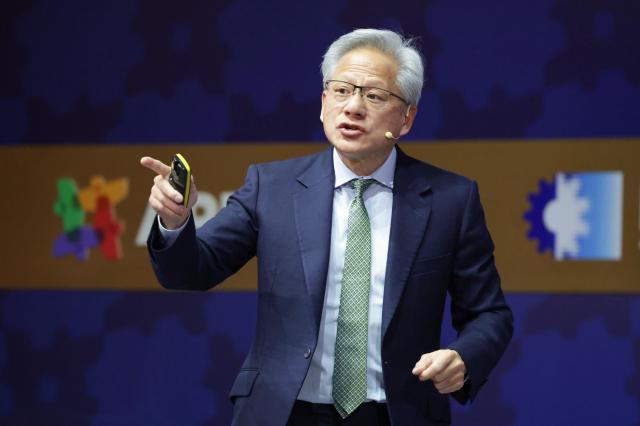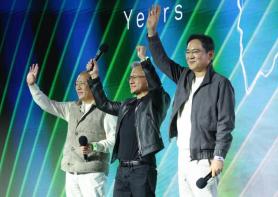
The chipmaker said it will work with Samsung Electronics, SK Group, Hyundai Motor Group and Naver Cloud to build what it terms "AI factories" across the Asian nation, marking one of its most ambitious sovereign AI infrastructure projects to date.
"Korea's leadership in technology and manufacturing positions it at the heart of the AI industrial revolution — where accelerated computing infrastructure becomes as vital as power grids and broadband," said Jensen Huang, founder and CEO of NVIDIA, during the sidelines of the Asia-Pacific Economic Cooperation summit held in Gyeongju.
"Just as Korea's physical factories have inspired the world with sophisticated ships, cars, chips and electronics, the nation can now produce intelligence as a new export that will drive global transformation."
Under the arrangement, the South Korean government will secure up to 50,000 GPUs to support corporate AI development. Samsung, SK Group and Hyundai Motor will each receive up to 50,000 units, while Naver Cloud will obtain 60,000 processors.
The deployment will expand South Korea's total AI GPU inventory from 65,000 to more than 300,000 units, the partnership extending beyond hardware supply to encompass platform collaboration.
The Korean companies will leverage Nvidia's software ecosystem, including its Nemotron language models and CUDA-X computing platform, to develop digital twins that enhance semiconductor manufacturing speed and yields.
Samsung plans to construct what Nvidia described as the industry's largest "semiconductor AI factory" equipped with 50,000 GPUs, while SK Group will focus on semiconductor research, cloud infrastructure and AI agent development.
Hyundai Motor will build an AI factory for autonomous vehicles, smart manufacturing and robotics, with the Korean government co-investing $3 billion in physical AI expansion.
The GPUs, primarily featuring Nvidia's latest GB200 Grace Blackwell architecture with some RTX 6000 series processors, face tight global supply constraints. Nvidia said it would prioritize allocation to ensure Korean entities receive priority access to the scarce chips.
Copyright ⓒ Aju Press All rights reserved.




